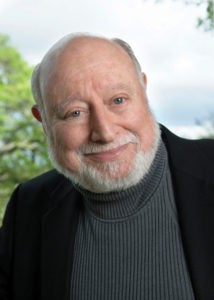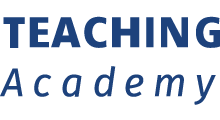
Prof Lee Shulman
Lee Shulman received the BA, MA and PhD from the University of Chicago. He served as a professor of educational psychology and medical education at Michigan State University from 1963 to 1982, where he founded and co-directed the Institute for Research on Teaching (IRT) and co-directed a 10-year program of research on medical thinking and decision making that led to publication of the classic Medical Problem Solving (Elstein, Shulman and Sprafka, 1978) by the Harvard University Press. In 1982, Prof Shulman moved to Stanford University’s School of Education, where he was the Charles E. Ducommun Professor of Education and Professor (by courtesy) of Psychology. In 1997, he was appointed President of the Carnegie Foundation for the Advancement of Teaching and served as its eighth president until 2008.
Currently he holds the position of the Charles E. Ducommun Professor of Education Emeritus at Stanford University and President Emeritus of the Carnegie Foundation. Prof Shulman holds all his academic degrees from the University of Chicago. He is a past president of the American Educational Research Association (AERA) and received its career award for Distinguished Contributions to Educational Research. He is also a past president of the National Academy of Education. He is the recipient of the American Psychological Association’s 1995 E.L. Thorndike Award for Distinguished Psychological Contributions to Education, a fellow of both the American Academy of Arts & Sciences and the American Association for the Advancement of Science, a Guggenheim Fellow, and a Fellow of the Center for Advanced Study in the Behavioral Sciences. He has been awarded 17 honorary doctoral degrees.
Prof Shulman’s research investigates teaching and teacher education at all levels from the elementary school to the PhD, medical education, assessment, the scholarship of teaching and learning, and signature pedagogies in the professions. Among other works, his publications include the following books: Medical Problem Solving (1978), The Wisdom of Practice: Essays on Teaching, Learning and Learning to Teach (2004), Teaching as Community Property.
PUBLIC LECTURE:
“The Scholarship of Teaching and Learning”
One of the most important developments in higher education world-wide has been the growing commitment of university faculty across the disciplines and professions to take teaching and learning more seriously as areas of serious scholarship. Rather than viewing research and teaching as competing poles in continuing competition for the attention and energy of university faculty members, we have come to see them as complementary. Beyond the longstanding notion that the most outstanding scholars often become the most accomplished teachers because they are on the leading edge of inquiry in their fields, has been the recognition that university professors have an obligation to direct their substantial talents as investigators toward asking fundamental questions about how knowledge and skill can best develop in the minds and hearts of their own students.
What does it mean to learn to think like a historian, a biologist, a physician or a business leader? How do we marshall our best understandings of how human beings learn and develop and combine those understandings with our grasp of the most critical features of our academic fields that should be taught and learned?
Prof Shulman will provide an overview of the new fields of scholarship of teaching and learning in academic and professional fields of study, illustrating his account with examples from physics and history, literature and mathematics, medicine & business.
He will discuss how empirical research methods are brought to bear on such questions, a topic that will be further developed in his masterclass workshop, which will emphasize the challenges of assessment and accountability.
WORKSHOP:
“The Challenges of Assessment and The Three Apprenticeships of Education”
One of the most important developments in higher education worldwide has been the growing commitment of university faculty across the disciplines and professions to take teaching and learning more seriously as areas of serious scholarship. Rather than viewing research and teaching as competing poles in continuing competition for the attention and energy of university faculty members, we have come to see them as complementary. Beyond the longstanding notion that the most outstanding scholars often become the most accomplished teachers because they are on the leading edge of inquiry in their fields, has been the recognition that university professors have an obligation to direct their substantial talents as investigators toward asking fundamental questions about how knowledge and skill can best develop in the minds and hearts of their own students.
What does it mean to learn to think like a historian, a biologist, a physician or a business leader? How do we marshall our best understandings of how human beings learn and develop and combine those understandings with our grasp of the most critical features of our academic fields that should be taught and learned?
Prof Shulman provided an overview of the new fields of scholarship of teaching and learning in academic and professional fields of study, illustrating his account with examples from physics and history, literature and mathematics, medicine & business.
He discussed how empirical research methods were brought to bear on such questions, a topic that was further developed in his masterclass workshop, which emphasized the challenges of assessment and accountability.


